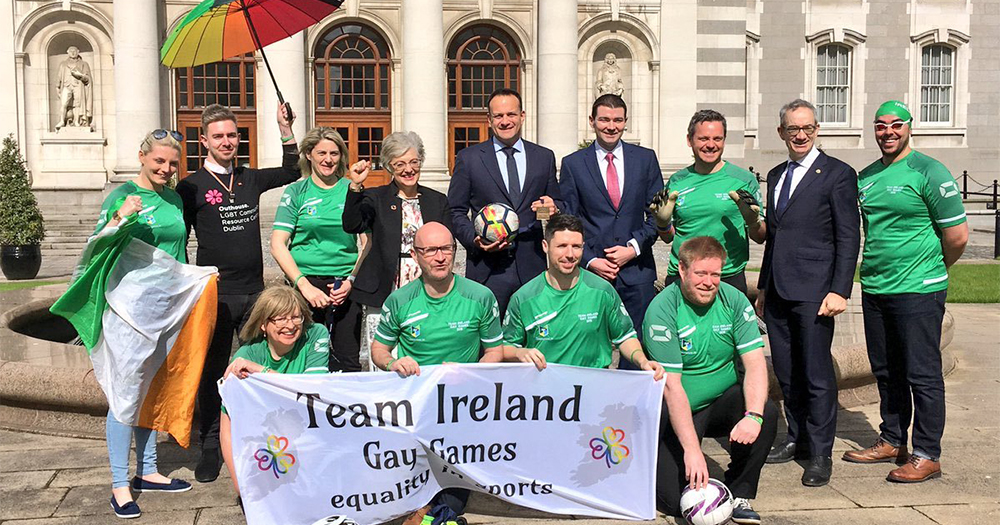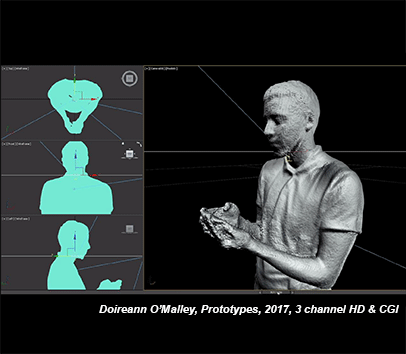“When are the straight games on?” – so went the comment on my boyfriend’s Facebook post in which I was tagged. The post in question featured photos of us, along with other members of Team Ireland at a reception hosted in Áras an Uachtaráin by President Michael D. Higgins. Not being a major fan of internet arguments, I opted not to get into all of the various reasons as to why and instead went with ‘No idea, but luckily the Gay Games is open to everyone regardless of their sexual orientation. It runs on an ethos of inclusion and participation in sport.’ The response was a predictable enough – “Well why call it the Gay Games then?” Again I opted for a bit of a side step, with a smidgeon of passive aggression – ‘Seemingly because the American Olympic Council were threatened by the use of the word Gay in conjunction with Olympics – which seems to be an issue still today, evidently.’
For those who are not aware, the Gay Games is a worldwide sport and cultural event, founded in 1982 that promotes acceptance of sexual diversity, featuring lesbian, gay, bisexual, and transgender (LGBT) athletes and artists. Similar to the Olympics, it is held every four years. Unlike the Olympics, it is open to anyone who wishes to compete and there are no qualifying standards, meaning it welcomes high end athletes as well as those who enter for participation rather than competition. The tenth edition took place in Paris this August, with over 11,000 competitors from over 80 countries competing across 40 different sports.
Gay Games closing ceremony in full swing #GayGames #Paris2018 #LGBTQCork pic.twitter.com/xU5blbmJDx
— Pádraig Rice (@PadraigRice) August 11, 2018
Having experienced first hand the importance of the Gay Games, I feel that my response to those rather ignorant if frivolous comments would now be slightly different. A 2016 study by Sport England, found that 55% of men in the LGBT community were not active enough to maintain good health, compared to 33% of men in the general population. The corresponding figures for women were 56% and 45% respectively, while 64% of LGBT people who identified as something other than male or female were not active enough to maintain good health. This is the first important reason as to why the Gay Games exist.
Here in Ireland, we are comparatively lucky, LGBTQ+ rights are definitely in the upper proportion of countries globally. However, the reality of the situation is that there are lots of outstanding issues for LGBTQ+ citizens which range from lack of hate crime legislation to gender recognition legislation for young people and ongoing issues with parental rights, to name but a few.
The week before we set off to Paris, unrelated to the Gay Games, a woman who has been with her partner for eighteen years came out to me. This woman in question is an extremely friendly, outgoing person that is always the life and soul of any party and always making jokes, yet she explained to me that in certain parts of her life she is a very private person, for example she is not out to anyone in her workplace. This could (unfairly) be dismissed out of hand, as this is just how this woman has always lived her life and that it’s more difficult for older generations to come out. It’s surely different for younger generations.
On the first day at the Paris Gay Games I met a young woman competing with Team Ireland. She is a talented athlete in her chosen sport and ultimately finished in an impressive 5th position. Again she is a warm, friendly sweet young bisexual woman, but she is only out to certain people in her life. Therefore whenever any photos were taken or any posts to social media made or even in the internal Team Ireland group chat, I always made sure to check that she was OK with anything I was going to post.
On a subsequent day of sports we went to support a trans member of Team Ireland. Again, I was conscious to keep even internal messages gender neutral so as not to out someone who may or may not be out. Again this athlete is a formidable competitor and ended up bringing home a bronze medal.
This is the situation for citizens of a country with equal marriage, an openly gay Taoiseach, a lesbian Minister and an openly gay leader of the Seanad, one of the most progressive countries in attendance at Paris. Now consider the bravery and determination required for the sole athlete from Singapore as he took to the arena in the opening ceremony or the two heroic Ugandans who overcame so much to even be in Paris, or the silver medal winner from Borneo who competed for a European country where he is now resident. When I asked, in my ignorance, as to whether it would have been possible to compete for his home country, his response was that he could have but he would probably be arrested if he went home.
RT @DrRonHolt: Be proud of who you are. ?️? #LGBT #inspiration #gghk2022 pic.twitter.com/tlDyG1cSkF
— GAY GAMES 11 HONG KONG 2023 (@GayGamesHK2023) August 20, 2018
I was very much in the participative side of things, running in the 10K, 5K and the half-marathon. It was an honour and a privilege to walk into the arena with Team Ireland for the opening ceremony, but I am lucky to come from Ireland, albeit there is still more progress yet to be made. Team Ireland did phenomenally well, bringing home an impressive 42 medals, but for me the most important element is the sheer support and camaraderie between athletes of all nations. In a microcosm for a brief period of time, athletes from all around the globe were free to be themselves and express themselves in a supportive and loving environment. The next Gay Games take place in Hong Kong in 2022, the first time to be held in Asia. It represents a significant step in LGBTQ+ progress.
In summary, I still have no idea when the straight games are, but maybe some day there won’t need to be a Gay Games either. Until then, we as a community and a nation must work towards a situation where LGBTQ+ people are free from persecution and fear both in sport and in daily life in Ireland and in all countries around the world.
© 2018 GCN (Gay Community News). All rights reserved.

